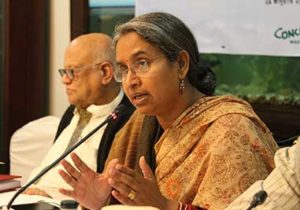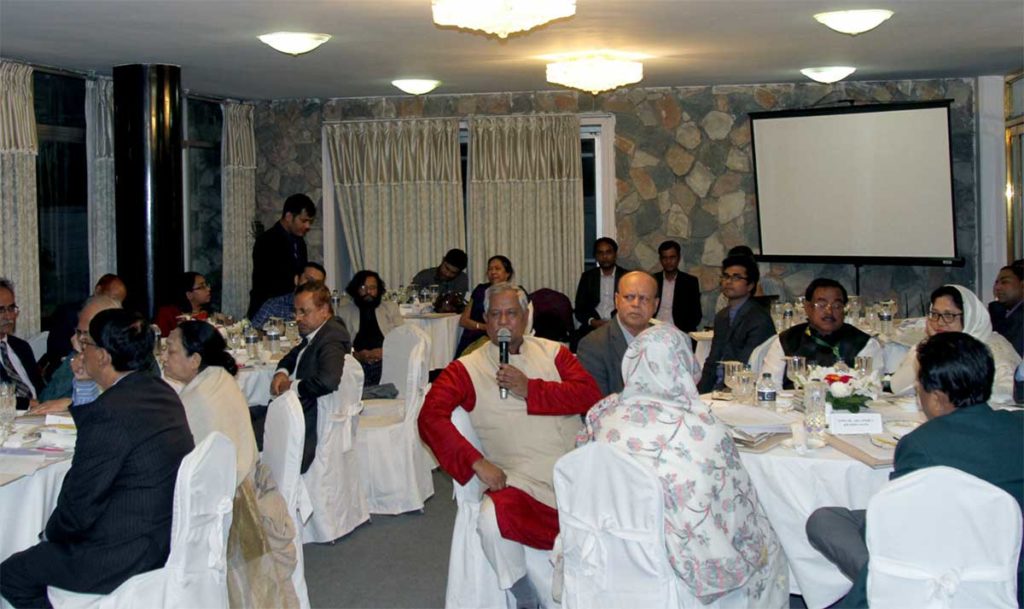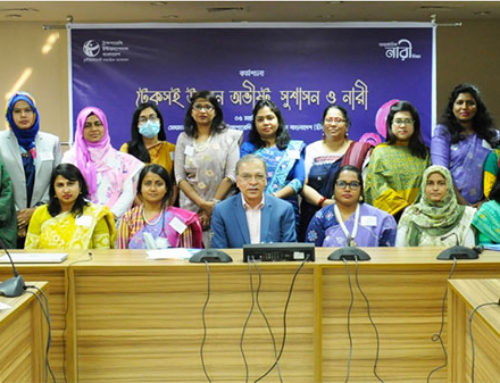Sustainable development Goal 11 aims to ‘make cities and human settlements inclusive, safe, resilient and sustainable’. Where does Bangladesh stand in terms of reaching the target? The question is particularly pertinent considering Bangladesh experiences one of the highest rates of urbanization in the world. At current rate, the country is set to transition as an urban majority country by 2040. With as many as 62% of the urban population dwelling in slums in 2009 as per the World Bank, it is safe to estimate that the number of urban poor will increase concurrently with the urban population explosion.
 Despite commendable achievements in rural development, Bangladesh’s urban policies and institutions are yet to respond concurrently to the massive urban population explosion. For example, social safety net, Bangladesh’s means of social protection for the extreme poor, vulnerable and excluded communities, has been meagre in comparison to the growing number of urban poor. The National Social Security Strategy 2015 mentions there exists “noticeable rural/urban differences in Social Security coverage with substantially lower coverage in urban area”. Household Income and Expenditure Survey (HIES) 2010 shows that for the two major programmes such as Old Age Allowance and Widowed and Distressed Women Allowance, the ratio of distribution between the rural and urban areas are 94.03% to 5.97% and 98.32% to 1.68% respectively.
Despite commendable achievements in rural development, Bangladesh’s urban policies and institutions are yet to respond concurrently to the massive urban population explosion. For example, social safety net, Bangladesh’s means of social protection for the extreme poor, vulnerable and excluded communities, has been meagre in comparison to the growing number of urban poor. The National Social Security Strategy 2015 mentions there exists “noticeable rural/urban differences in Social Security coverage with substantially lower coverage in urban area”. Household Income and Expenditure Survey (HIES) 2010 shows that for the two major programmes such as Old Age Allowance and Widowed and Distressed Women Allowance, the ratio of distribution between the rural and urban areas are 94.03% to 5.97% and 98.32% to 1.68% respectively.
To highlight the urban-rural disparity, Concern Worldwide Bangladesh and All Party Parliamentary Group (APPG) on Extreme Poverty and Urban Pavement Dwellers of the National Parliament organised a policy makers’ pre-budget dialogue titled ‘National Budget 2018-19: Expectations of the Poor and Social Safety Net Programme’ on 29 January, 2018 at the State Guest House Padma. The Hon. Minister of Finance, Abul Maal Abdul Muhith, MP was present as the Chief Guest, while Hon. Dr. Dipu Moni, MP chaired the dialogue. Hon. Hasanul Haq Inu, MP, Minister of Information; Hon. Dr. M. Abdur Razzak, MP, Chair, Standing Committee on Ministry of Finance; and Hon. Israfil Alam, MP, Chair, APPGs on EP and Urban Pavement Dwellers, were among the major parliamentarians and dignitaries present at the event.
The dialogue drew attention of the Hon. Finance Minister and the policy makers on the necessity of allocating national budget for expanding the social safety net (SSN) coverage in urban Bangladesh. The Hon. Finance Minister identified the existing urban-rural disparity in SSN allocation, and emphasised on proper planning and policies to address the issue. He also stressed on comprehensive data on the extent of urban poor for initiatives on urban social safety net.
Hon. Israfil Alam, MP, Chair, APPGs on EP and Urban Pavement Dwellers stated that it is important that urban poor are brought under the SSN schemes for Bangladesh to reach the Vision 2021 and SDG 11. He suggested for scaling up the exiting Urban Community Development programme under the Ministry of Social Welfare, or initiating new SSN programmes with City Corporation’s clear role in distribution and monitoring, as viable options.
A.K.M. Musha, Country Director, Concern Worldwide, suggested that the urban-rural disparity in national SSN allocation can be addressed by taking the ratio of urban and rural poor in account and distributing accordingly. He also stressed on proper monitoring and quality assurance for greater effectiveness of SSNs.





